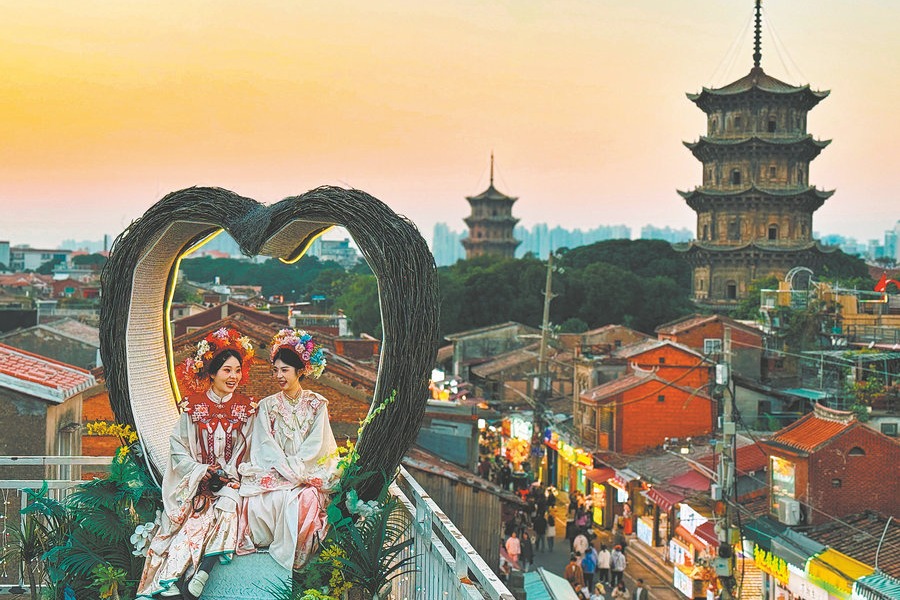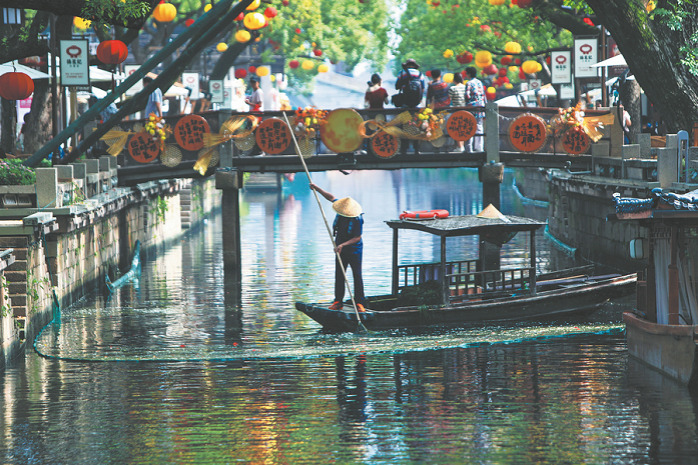City of springs


Baotu Spring is a roughly 20-minute walk to Qushuiting Street, a small pedestrian alleyway lined by traditional courtyards with a spring-fed waterway running through the center.
Residents play Chinese chess and chat near the channel. Seaweed in the water seems to wave at the willow branches above.
Water can be seen bubbling up from spots near the foot of the walls that line the road.
Street-side stalls sell da wan cha (big-bowl tea) made using the spring water for about 2 yuan a cup.
Cuisine from Jinan and around China is available in nearby Furong Alley.
From there, it's a short walk to the end of Qushuiting Street, where the moat empties into the 53-hectare Daming Lake.
Over 30 temples, pavilions and bridges orbit the lake. The two most celebrated holy sites are the Ming Dynasty (1368-1644) courtyard-style Tiexuan Temple and the Yuan Dynasty (1271-1368) Taoist Beiji Temple.
A modern innovation on Jinan's ancient spring culture is that people can scan QR codes at 100 drinking fountains around the city and get 250 milliliters of purified spring water pumped from the Shunjing Well. Each person can scan the fountains up to 10 times a day.
"The springs are nature's gift to Jinan," Lixia district public worker Pu Haibin says.
"We hope more people can enjoy them."
If you go
The Beijing-Shanghai high-speed railway connects to Jinan. The train from Beijing takes a little over two hours. Black Tiger Spring and Daming Lake are admission-free. Baotu Spring Park tickets cost 40 yuan. High-end and boutique hotels line the city's waters.

































